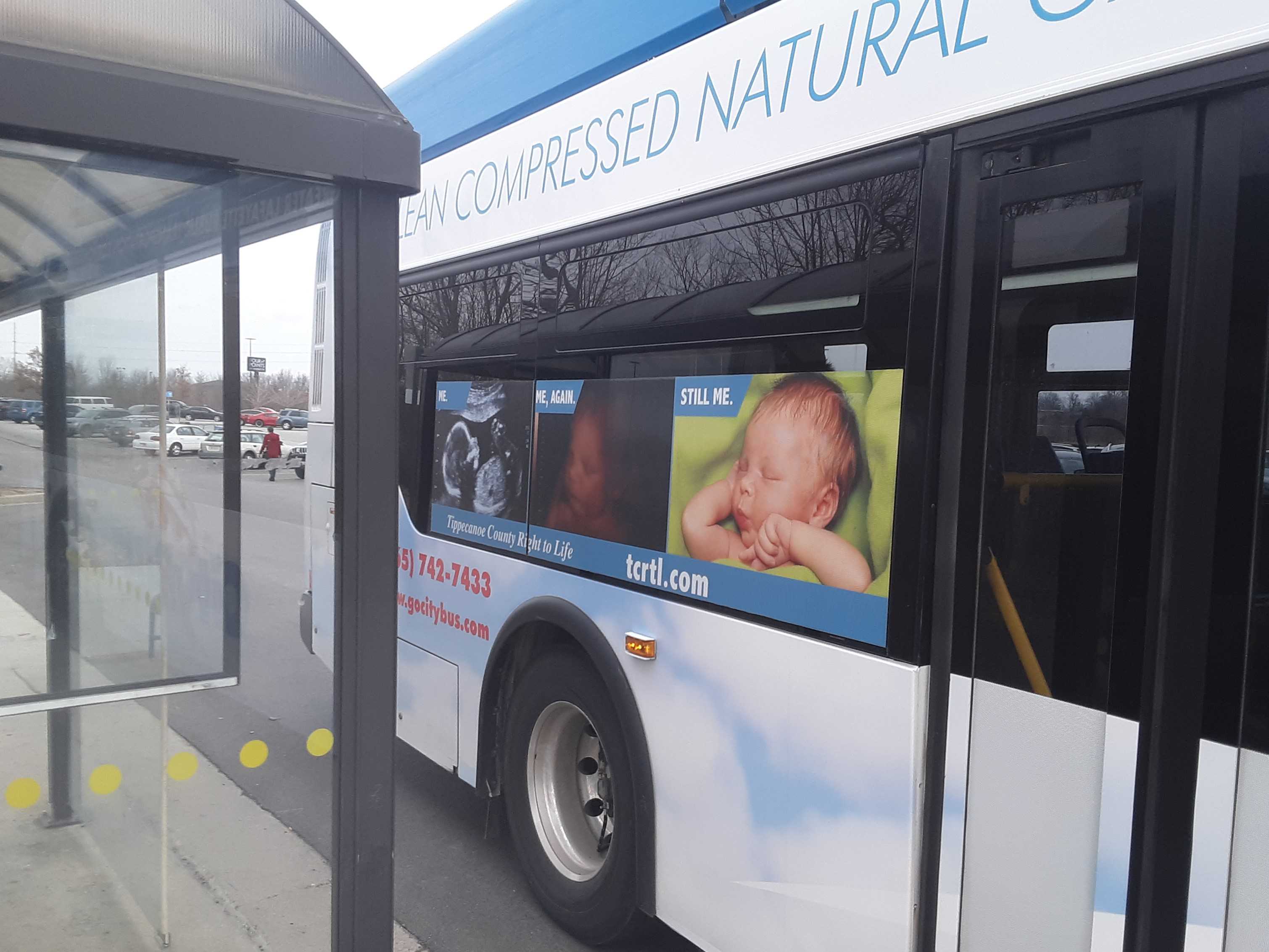 LAFAYETTE, Ind. — A government-run bus company in Indiana that had been sued for rejecting a proposed advertisement showing the personhood and humanity of the unborn has amended its policy and will now allow the advertisement after all.
LAFAYETTE, Ind. — A government-run bus company in Indiana that had been sued for rejecting a proposed advertisement showing the personhood and humanity of the unborn has amended its policy and will now allow the advertisement after all.
Alliance Defending Freedom (ADF), which represented Tippecanoe County Right to Life in court, announced on Thursday that CityBus has not only agreed to allow the ad, but to also pay “certain attorneys fees and damages” under a legal settlement.
“It’s a scientific fact that unborn babies are just as human as the newborn babies we cherish, and Tippecanoe County Right to Life’s ad shares that truth in a compelling way,” ADF Legal Counsel Samuel Green said in a statement. “We are thankful that CityBus is now allowing this educational message to reach people as they study, shop, and commute. The First Amendment protects freedom of speech for all people, regardless of their beliefs or their viewpoint.”
As previously reported, in 2017, the Tippecanoe County Right to Life contacted CityBus to inquire about advertising options. The discussion progressed and Tippecanoe County Right to Life was provided with a contract to move forward. A representative provided the selected design and signed the contract.
The advertisement was comprised of three photos, two of which show ultrasounds of an unborn child with the words “me” and “me again” superimposed on each, followed by a photograph of a newborn that reads “still me.” The name Tippecanoe County Right to Life appears below the graphic, along with the web address for the organization. See the ad in full here.
Days later, CityBus emailed Tippecanoe County Right to Life to advise that “[p]ursuant to CityBus’ policies and procedures,” the advertisement was “reviewed by the development manager and general manager” and “is rejected as submitted” because “the proposed advertisement does not comply with CityBus’ guidelines.”
The company pointed to its policies, which state that “political campaign speech referring to a specific ballot question (other than candidates for office), initiative petition, referendum or political viewpoint” is prohibited.
The representative also highlighted policy language stating, “CityBus accepts advertising that meets all of the following criteria for political advertising for candidates for office: (1) No statement of political viewpoint, initiative petition, or referendum is made in the advertisement. … (4) Graphics contained in the advertisement do not imply a political viewpoint.”
However, Tippecanoe County Right to Life argued that the advertisement is strictly educational and cannot be classified as a political advertisement. During a meeting, representatives of CityBus reiterated that the ad communicated a political viewpoint, and if that particular advertisement was accepted, ads for the KKK would also have to be approved.
Tippecanoe County Right to Life consequently sought to understand exactly what type of advertisement would be acceptable, and offered to find sponsors so that the pro-life organization’s name would not be included in the design. After consulting with their attorneys, CityBus said that “Tippecanoe County Right to Life” would indeed need to be removed from the advertisement, as well as the words “me,” “me again,” and “still me.”
The group therefore decided not to run the advertisement at all as removing the wording would defeat its purpose of educating the public. It sued CityBus, noting that the company had allowed other comparable advertising that could be deemed “political.”
“TCRTL desires immediate access to display TCRTL’s ad on CityBus’s buses and to gain equal access to all of the advertising opportunities CityBus makes available to others in their efforts to communicate to people in the public square,” the legal challenge stated.
“CityBus’s speech prohibitions … violate the Free Speech Clause of the First Amendment, both facially and as applied to reject TCRTL’s ad, because they create an unreasonable, arbitrary, and disproportionate burden on the exercise of protected speech without any legitimate justification,” it contended.
Read the lawsuit in full here.
CityBus has now agreed to run the advertisement and to amend its policies so as to avoid any issue in the future.
Become a Christian News Network Supporter...


